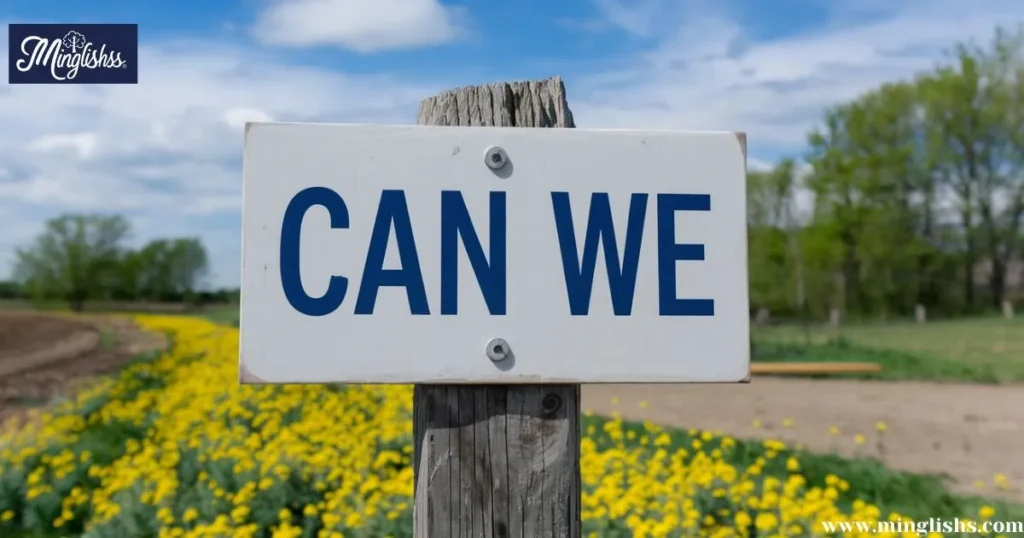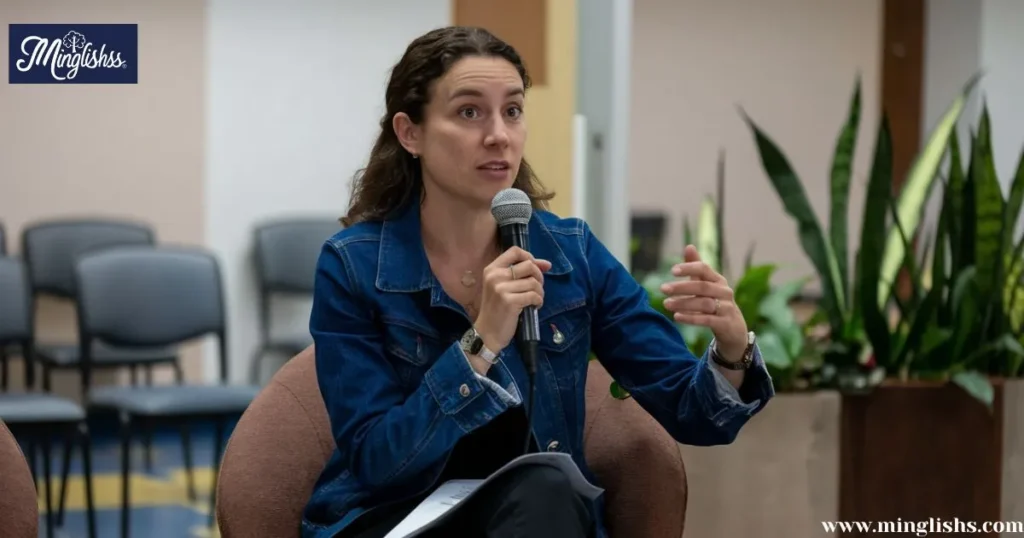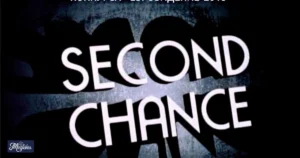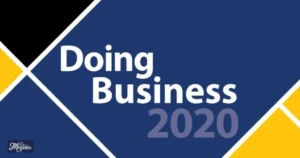“Are you looking for more ways to express your thoughts? Let’s explore alternatives to ‘Would it be possible?’”
In our daily conversations, expressing requests or seeking permission is common. Phrases like “Would it be possible?” serve as polite ways to approach someone about a particular matter. However, varying our language can make communication more engaging and effective. This blog will explore diverse alternatives that can enhance your conversational skills.
Understanding the nuances of language can help you convey your message more clearly. Using different expressions can also reflect your personality and make your interactions more interesting. So, if you’re tired of using the same old phrases, keep reading!
In this blog, we’ll dive into 35 alternative phrases for “Would it be possible?” Each suggestion will include a scenario and a brief explanation to illustrate its use. We’ll also provide additional tips to help you choose the right phrase in different contexts. By the end, you’ll have a toolkit of expressions ready to elevate your communication.
35 Other Ways to Say Would It Be Possible
1. Could You Please?
Scenario: You need help from your coworker, Sarah, on a project.
Subject Explanation: When you approach Sarah, you might say, “Could you please help me with this project? I’m struggling to meet the deadline.” This phrase is polite and direct, making it clear that you are requesting assistance without sounding demanding.
Additional Tips: Using “Could you please?” conveys respect for the other person’s time and expertise. It also implies that you are open to their availability, fostering a collaborative atmosphere.
2. Would You Mind?
Scenario: You want to borrow a book from your friend, Mike.
Subject Explanation: Instead of saying, “Would it be possible for me to borrow your book?” you could say, “Would you mind if I borrowed your book for a few days?” This phrase is friendly and shows consideration for Mike’s feelings.
Additional Tips: “Would you mind?” is an excellent choice when you want to ensure the other person is comfortable with your request. It softens the ask and makes it more about their willingness than your need.
3. Is It Feasible?
Scenario: You’re discussing project timelines with your manager, Lisa.
Subject Explanation: You might say, “Is it feasible to complete this project by next week?” This expression focuses on practicality, making it suitable for professional settings where time constraints are a concern.
Additional Tips: Using “Is it feasible?” shows that you are thinking critically about the request and considering the resources available, which can enhance your credibility in the workplace.
4. Can We?

Scenario: You want to change the meeting time with your team.
Subject Explanation: Instead of saying, “Would it be possible to change our meeting time?” you can say, “Can we change our meeting time to later in the week?” This phrase is straightforward and encourages dialogue.
Additional Tips: “Can we?” implies collaboration and partnership. It invites others to contribute to the decision-making process, which can lead to a more engaged team.
5. Would It Be Okay?
Scenario: You want to bring your dog to a friend’s house.
Subject Explanation: You could say, “Would it be okay if I brought my dog along?” This expression is casual and friendly, perfect for informal settings.
Additional Tips: This phrase adds a personal touch to your request. It makes the other person feel valued and involved in the decision.
6. May I?
Scenario: You want to enter a colleague’s office.
Subject Explanation: Instead of saying, “Would it be possible for me to enter your office?” you could say, “May I come in?” This formal expression is appropriate for professional contexts and shows respect.
Additional Tips: “May I?” is a classic phrase that conveys politeness and formality. It’s ideal for situations where authority and respect are paramount.
7. How About?
Scenario: You want to suggest a new approach to a project.
Subject Explanation: You might say, “How about we try this new method for our project?” This phrase is less formal and encourages brainstorming.
Additional Tips: Using “How about?” invites collaboration and discussion. It’s a great way to include others in your thought process.
8. Is It Possible?
Scenario: You’re negotiating a deadline with a vendor.
Subject Explanation: You could ask, “Is it possible to adjust the deadline to next month?” This phrase is direct and focuses on the potential for change.
Additional Tips: This expression is clear and straightforward, making it effective for negotiations and business discussions.
9. Could I Get?
Scenario: You’re ordering food at a restaurant.
Subject Explanation: Instead of saying, “Would it be possible to get a side salad?” you might say, “Could I get a side salad with my meal?” This phrase is friendly and clear.
Additional Tips: “Could I get?” is casual and effective for everyday situations. It shows confidence in your request while maintaining politeness.
10. What If We?
Scenario: You’re planning a trip with friends.
Subject Explanation: You could propose, “What if we changed our destination to the mountains?” This phrase opens up discussion and encourages creative thinking.
Additional Tips: Using “What if we?” fosters a brainstorming atmosphere. It helps to generate new ideas and explore options together.
11. Would You Be Open To?
Scenario: You want to propose a new idea at work.
Subject Explanation: Instead of saying, “Would it be possible to implement my idea?” you might say, “Would you be open to discussing my idea?” This expression is respectful and non-confrontational.
Additional Tips: This phrase invites others to consider your suggestion without pressure. It encourages dialogue and collaboration.
12. Could I Ask?

Scenario: You want to inquire about a favor from a neighbor.
Subject Explanation: Instead of saying, “Would it be possible for you to help me?” you could say, “Could I ask you for a favor?” This is a gentle way to request assistance.
Additional Tips: “Could I ask?” softens your request and makes it clear that you value the other person’s time and willingness to help.
13. Is There a Chance?
Scenario: You’re hoping for a promotion at work.
Subject Explanation: You might ask your manager, “Is there a chance I could be considered for the promotion?” This phrase expresses hope while respecting the decision-making process.
Additional Tips: This expression is effective in situations where you want to gauge interest or possibilities. It shows your ambition without coming off as entitled.
Other Ways to Say Thank You for Your Reply
14. Might It Be Possible?
Scenario: You want to extend a deadline with a client.
Subject Explanation: Instead of saying, “Would it be possible to extend the deadline?” you could say, “Might it be possible to extend the deadline by a week?” This phrase is polite and formal.
Additional Tips: “Might it be possible?” is a softer way to request something, making it suitable for sensitive topics or negotiations.
15. How Likely Is It?
Scenario: You’re evaluating a potential collaboration.
Subject Explanation: You might say, “How likely is it that we can partner on this project?” This expression encourages discussion about feasibility and expectations.
Additional Tips: This phrase invites analysis and assessment, making it useful in strategic conversations.
16. Would It Work?
Scenario: You’re suggesting a new plan to your team.
Subject Explanation: Instead of saying, “Would it be possible to implement this plan?” you could say, “Would it work if we tried this plan?” This phrase focuses on practicality.
Additional Tips: “Would it work?” emphasizes results and effectiveness. It keeps the conversation focused on outcomes, which is beneficial in team settings.
17. Can I?
Scenario: You want to take a day off work.
Subject Explanation: You might say, “Can I take Friday off?” This straightforward request is direct and clear.
Additional Tips: “Can I?” is a casual, confident approach that is suitable for informal conversations and environments.
18. Would It Be Acceptable?
Scenario: You’re negotiating terms with a supplier.
Subject Explanation: Instead of saying, “Would it be possible to adjust the pricing?” you could say, “Would it be acceptable to discuss adjusting the pricing?” This phrase maintains professionalism.
Additional Tips: This expression is effective in formal negotiations, helping to establish respect and clarity in communication.
19. Can We Explore?

Scenario: You’re brainstorming solutions with a team.
Subject Explanation: You might say, “Can we explore some new ideas for the project?” This encourages creativity and collaboration.
Additional Tips: “Can we explore?” fosters an open-minded approach, allowing everyone to contribute ideas without judgment.
20. Is It Within Reach?
Scenario: You’re assessing the possibility of a new project.
Subject Explanation: Instead of saying, “Would it be possible to undertake this project?” you could say, “Is it within reach for us to undertake this project?” This expression frames the request in terms of capability.
Additional Tips: This phrase is useful in evaluating ambitions and resources, prompting discussions about practical limitations.
21. Could It Be Done?
Scenario: You’re discussing a task with your coworker.
Subject Explanation: You might say, “Could it be done by the end of the week?” This question is focused on deadlines and capabilities.
Additional Tips: “Could it be done?” emphasizes deadlines and encourages accountability, making it effective in team settings.
22. Would You Consider?
Scenario: You want to propose a new idea to your supervisor.
Subject Explanation: Instead of saying, “Would it be possible for you to consider my proposal?” you could say, “Would you consider my proposal for the new project?” This phrase is respectful and encourages consideration.
Additional Tips: This expression shows respect for the other person’s authority and encourages a thoughtful response.
23. Could We Look At?
Scenario: You’re reviewing options for a project.
Subject Explanation: You might say, “Could we look at different options for our project?” This phrase invites discussion and exploration.
Additional Tips: “Could we look at?” encourages collaboration and ensures that all voices are heard during decision-making.
24. Is There Any Way?
Scenario: You’re trying to find a solution to a problem.
Subject Explanation: You might say, “Is there any way we can solve this issue by tomorrow?” This phrase focuses on possibilities and solutions.
Additional Tips: This expression highlights urgency and determination while remaining respectful.
25. What Would It Take?
Scenario: You’re discussing a change in plans.
Subject Explanation: You might say, “What would it take to reschedule our meeting?” This phrase focuses on requirements and solutions.
Additional Tips: This expression is effective for problem-solving discussions, making it clear that you’re open to finding a solution.
26. Would You Be Willing?
Scenario: You’re asking a friend for a favor.
Subject Explanation: Instead of saying, “Would it be possible for you to help me?” you could say, “Would you be willing to help me move this weekend?” This phrase is direct and polite.
Additional Tips: This expression shows appreciation for the other person’s willingness, making it a great choice for personal requests.
27. How About We Consider?
Scenario: You want to suggest a new approach to a task.
Subject Explanation: You might say, “How about we consider a different approach for this task?” This phrase encourages collaboration and discussion.
Additional Tips: This expression fosters an open environment where everyone can contribute ideas and suggestions.
28. Is It Worth Trying?

Scenario: You’re assessing the feasibility of a new initiative.
Subject Explanation: Instead of saying, “Would it be possible to try this new initiative?” you could say, “Is it worth trying this new initiative?” This phrase emphasizes exploration and potential benefits.
Additional Tips: This expression is effective in discussions about risks and rewards, encouraging thoughtful consideration.
29. Could You Help Me Out?
Scenario: You need assistance with a task at work.
Subject Explanation: Instead of saying, “Would it be possible for you to assist me?” you could say, “Could you help me out with this task?” This phrase is casual and friendly.
Additional Tips: This expression conveys camaraderie and encourages teamwork, making it suitable for collaborative environments.
30. What Do You Think About?
Scenario: You want to gauge opinions on a new proposal.
Subject Explanation: You might ask, “What do you think about my proposal for the project?” This phrase invites feedback and encourages discussion.
Additional Tips: This expression is effective for promoting dialogue and ensuring all voices are heard.
31. Could We Discuss?
Scenario: You want to set up a meeting to talk about a project.
Subject Explanation: Instead of saying, “Would it be possible to discuss the project?” you might say, “Could we discuss the project details soon?” This phrase is polite and direct.
Additional Tips: “Could we discuss?” shows initiative and encourages prompt communication, making it effective in professional settings.
32. Is There a Possibility?
Scenario: You want to explore options for a new strategy.
Subject Explanation: You might say, “Is there a possibility we could implement this strategy?” This phrase emphasizes exploration and potential outcomes.
Additional Tips: This expression encourages consideration of various options and demonstrates openness to new ideas.
33. Could We Set Up?
Scenario: You’re arranging a meeting with a client.
Subject Explanation: Instead of saying, “Would it be possible to set up a meeting?” you could say, “Could we set up a meeting to discuss this?” This phrase is clear and to the point.
Additional Tips: This expression emphasizes organization and helps ensure that all necessary parties are involved.
34. Would It Be All Right?
Scenario: You want to share a personal opinion with a colleague.
Subject Explanation: You might ask, “Would it be all right if I shared my thoughts on this matter?” This phrase is respectful and invites collaboration.
Additional Tips: This expression shows consideration for the other person’s perspective, fostering a respectful dialogue.
35. Can I Suggest?
Scenario: You want to propose a new idea in a team meeting.
Subject Explanation: Instead of saying, “Would it be possible to suggest an idea?” you could say, “Can I suggest an alternative approach?” This phrase is confident and proactive.
Additional Tips: This expression promotes creativity and innovation, encouraging others to share their ideas as well.
Pros and Cons
Pros
- Variety in Communication: Using different phrases keeps conversations interesting.
- Building Rapport: Alternative expressions can help you connect with others more personally.
- Clarity: Some phrases may convey your request more clearly than the standard “Would it be possible?”
- Flexibility: Different contexts require different approaches, and having a variety of phrases helps adapt to those situations.
Cons
- Overthinking: Trying to choose the perfect phrase can sometimes complicate simple requests.
- Cultural Differences: Some expressions may not be understood universally, leading to confusion.
- Formality: In some situations, casual phrases might not be appropriate, risking a lack of professionalism.
Conclusion
Incorporating different ways to express “Would it be possible?” can significantly enhance your communication skills. Whether in personal or professional settings, having a variety of phrases at your disposal can make your requests sound more engaging and thoughtful.
By using the alternatives discussed in this blog, you’ll be better equipped to convey your thoughts and feelings while fostering positive interactions. So, the next time you find yourself asking for something, remember to explore these options to make your communication shine!
Answer to key questions
1. What are some polite alternatives to “Would it be possible?”
There are many alternatives, such as “Could we explore?” “Would you consider?” and “Can I suggest?” These phrases maintain politeness while varying your expression.
2. When should I use these alternatives?
You can use these alternatives in both professional and casual settings. Choose phrases based on the context and your relationship with the person you’re communicating with.
3. Can these phrases help improve my communication skills?
Yes! Using varied expressions can enhance clarity and engagement in your conversations. It shows thoughtfulness and can foster a more collaborative environment.
4. Are there specific phrases suited for formal situations?
Yes, phrases like “Would you be willing to consider?” or “Could we discuss the possibility?” are more formal and suitable for professional environments.
5. How can I remember these different expressions?
Practice using them in your daily conversations. You can also write them down or create flashcards to reinforce your memory. The more you use them, the more natural they will become!

Hi, I’m Lauren Reynolds: I bring creativity to English lessons, mixing fun with learning. My goal is to inspire students to explore and enjoy the language.










